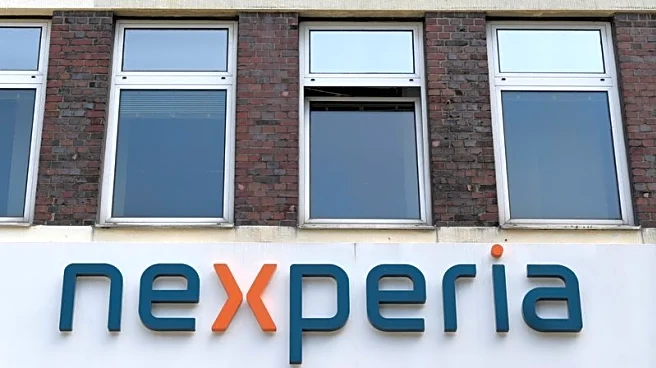By Aditi Shah, Daniel Leussink and Rachel More
TOKYO (Reuters) -Nissan Motor and Mercedes-Benz on Wednesday became the latest global automakers to sound the alarm about a deepening semiconductor supply
crunch, highlighting the growing fallout from a tussle between the Netherlands and China over
Dutch chipmaker Nexperia.
A trade and intellectual property stand-off between China and the Dutch government over Nexperia, whose chips are widely used in automotive components, is the latest challenge for an industry already grappling with U.S. tariffs and Chinese curbs on rare earths.
It is also a reminder of automakers' vulnerability in the face of the trade frictions between China and the West.
China has banned exports of Nexperia's finished products from its Chinese plants after the Dutch government in September seized control over the chipmaker, citing concern about the possible transfer of technology to Nexperia's Chinese parent, Wingtech .
The Chinese company has been flagged by the United States as a possible national security risk.
"It's not a small issue, it's a big issue," Nissan's Chief Performance Officer Guillaume Cartier told reporters when asked about the impact on chip supply.
"For the moment we don't have full visibility."
Cartier, in a group interview at the Japan Mobility Show in Tokyo, said the automaker was "okay to the first week of November" in terms of chip supply.
While it was possible to have a grasp of the state of supply at its biggest suppliers - so-called Tier 1 - it became more difficult further down the supply chain, he said.
German carmaker Mercedes-Benz is now scouring around the world for alternative supply, CEO Ola Kaellenius said on Wednesday.
Kaellenius, too, said it was hard to see how the situation would play out.
In Brazil, a major automaking hub, some manufacturers may have to halt operations within two to three weeks if the crisis continues, an official said on Tuesday.
The Brazilian government is contacting Chinese authorities to find a solution, the official said.
(Reporting by Aditi Shah and Daniel Leussink in Tokyo and Rachel Moore in Berlin; Writing by David Dolan; Editing by Kim Coghill)









